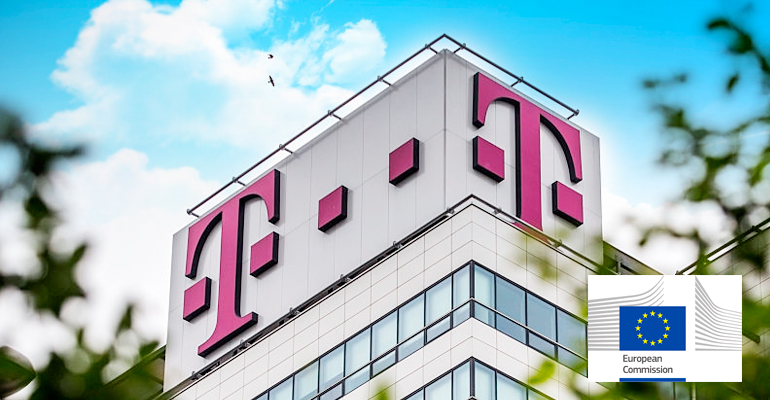

After the European Commission (the “Commission”) by its decision from 5 October 20141 imposed a fine of more than 38 millions of euros on Slovak Telekom for the abuse of its dominant position on Slovak market for broadband services, Slovak Telekom has come to face damage claims from mobile operators Orange Slovensko and SWAN. The said operators claimed damages they allegedly suffered before Bratislava court, in the amount exceeding 280 million euros on the grounds of the said Commission’s decision that found Slovak Telekom has abused its dominant position.
By the same 2014 decision of the Commission, Deutsche Telekom was fined an additional milion euros for repeated abusive behavior, thus being held liable in total amount of almost 70 million euros (including around 39 million euros which it is held jointly and severally liable with Slovak Telekom).
A Slovak damage claim mechanism corresponds to a recommended course of action formulated in the “Directive of the European Parliament and of the Council on certain rules governing actions for damages under national law for infringements of the competition law provisions of the Member States and of the European Union”2 (the “Directive”). Since antitrust market behavior can cause serious damages for both consumers and other market participants the Directive invites national authorities to adjust the national legislation so to enable any natural or legal person — consumers, undertakings and public authorities alike — “irrespective of the existence of a direct contractual relationship”3 to file claim for damages before the national courts against the undertaking that have infringed the Union antitrust rules. The Directive stresses out that national rules should not be formulated or applied in a way that makes it difficult or practically impossible to exercise the right to compensation guaranteed by the TFEU or less favorably than those applicable to similar domestic actions.
Thus, anyone who has suffered damages caused by an infringement of Union competition rules can claim compensation for actual loss as well as for gain of which it has been deprived, plus interest. In order to succeed in establishing the claim for damages the causal link between the infringement of the antitrust rules and the damage that has occurred has to be determined through court proceedings. As for the amount of the compensation, the Directive outlines that proportionality is the key principle, so that overcompensation must not be awarded in any form.
Despite the fact that, as an EU acceding country, the Serbian legal system recognizes the same possibility of compensation claims under the Serbian Act on Protection of Competition (the “Competition Act”), it seems that the market operators that are victims of antitrust behavior are still reluctant to use this remedy, since almost no claims for damages on the said ground were brought before the Serbian courts and none have been successful up to date.
Namely, according to Article 73 of Competition Act, a compensation for damage caused by acts and practices considered as infringement of competition rules by the decision of the Serbian Commission for Protection of Competition (the “Competition Commission”), can be claimed before the competent court. The Competition Commission’s decision represent the grounds for filing the claim for damages caused by infringement of competition rules, but in the proceedings before the court, the burden of proof lies on the plaintiff.
Considering that the damages caused by anti-competitive behavior of certain operators active on the Serbian market can reach serious amounts and consequently impact the business operations of victims of such illegal conduct, the Slovak case is a very recent reminder of the benefits (and risks for antitrust wrongdoers) of the damage claim mechanism also on disposal to Serbian market players. However, it is yet to be seen whether Serbian companies will overcome existing reluctance and to what extent the national courts will welcome the follow-up damages claims.
————————————-
1See Case AT.39523 — Slovak Telekom
Summary of Commission Decision available at: http://eur-lex.europa.eu/legal-content/EN/TXT/PDF/?uri=CELEX:52015XC0923(01)&from=EN
2Available at: http://ec.europa.eu/competition/antitrust/actionsdamages/damages_directive_final_en.pdf
3See Directive of the European Parliament and of the Council on certain rules governing actions for damages under national law for infringements of the competition law provisions of the Member States and of the European Union, http://ec.europa.eu/competition/antitrust/actionsdamages/damages_directive_final_en.pdf